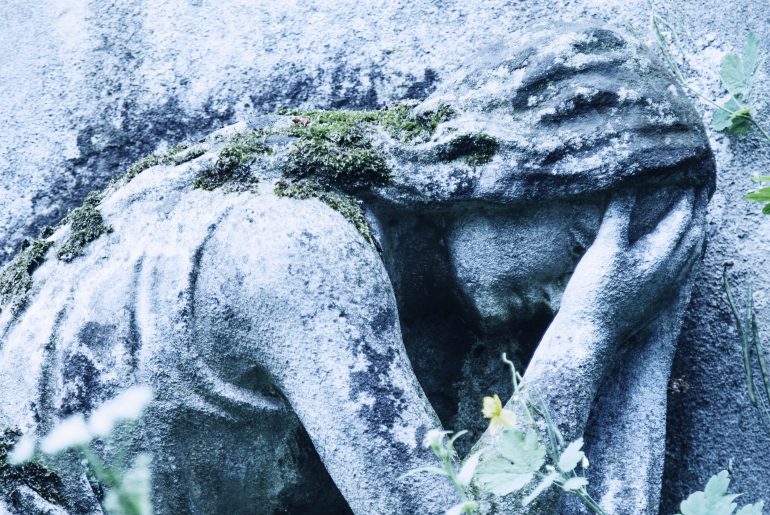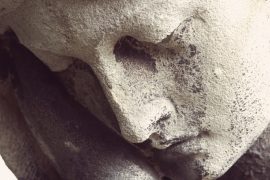This post is part of the series Depression
Other posts in this series:
- Happy Pills and other myths
- Suicide – the truth about Romeo and Juliet
- Drained of all colour: What is depression? (Current)
Depression is a difficult concept to understand. We use the term loosely every day: “that movie was so depressing,” or, “I feel so depressed when I think of Cape Town’s water situation”. In this context depression is a normal, healthy part of the human experience.
From an evolutionary perspective, depression could even be normal and necessary. Consider the baby bear who lost his mother. First, there is crying and wailing (separation anxiety), in the hope of calling the mother to him. Then there is silent resignation and withdrawal (depression). The cub curls into a ball and barely moves, so as not to alert predators to his whereabouts until mother hopefully returns.
The modern western man has a philosophical view that the mind and body are separate entities. Following on, we can control our thoughts and create our own realities. Whilst there is some truth to this, cognitive behaviour therapy, for example, teaches one how to challenge your negative thoughts, it also creates difficulties. Depressed people often hear “just think positively” or feel that they must “try harder”.
However, a very basic truth remains: the brain is an organ and, like any other organ in our body, it can get sick. Depression is a sickness of the brain.
Depression can be difficult to pin down, as it has a cluster of symptoms. These symptoms are psychological, such as helplessness, hopelessness, guilt, worthlessness, inability to enjoy previous passions and even suicidality. The symptoms are also physical, such as fatigue even after a good night’s rest, eating too much or too little, sleep disturbances, loss of libido and difficulties with memory and concentration. Anxiety, pain syndromes and addictions are very interwoven with depression.
Not only is depression a cluster of symptoms, but the causes of depression can also be very varied. These can be purely biological, such as a vitamin deficiency or endocrine problem. It could be that the patient has a psychological profile making them vulnerable to depression – perfectionism and people-pleasing can create a perfect storm. Chronic stress is a toxin to the brain, in the same way that a lot of sugar is to the pancreas or cigarettes to the lungs. Acute trauma and accumulated traumas can topple the balances of the brain. Many of us carry a genetic load which increases our vulnerability to depression. With so many possible causes and symptoms, no single test can confirm the diagnosis of depression. A diagnosis is made by taking a careful history and running appropriate tests to exclude causes.
Typically, depression is divided into mild, moderate and severe. But sometimes these categories are arbitrary. If for example, an aircraft controller has even mild depression and is struggling to concentrate, the consequences can be as profound as for someone with severe depression who can’t get out of bed. The need for medication has to be assessed on an individual basis.
Chronic, untreated depression can change the structure of the brain. The hippocampus (our major memory storehouse) may shrink, affecting our ability to remember and learn. The prefrontal cortex, a key structure in emotional regulation and decision making, may also shrink. Repeated stress can enlarge the amygdala, which in turn results in a “hyper” physiological response to stressors. The good news is that appropriate treatment can reverse many, if not all, of these changes.
Depression is difficult to define. It has many causes and many presentations. But it most definitely is an illness with diagnostic criteria, which can be effectively treated. The road to recovery is often hard and finding the right treatment can be complicated. Denying the problem, or even worse stigmatising the sufferer, makes it even harder.
Are you possibly suffering from depression? Take this questionnaire and get the help you need (www.findhelp.co.za)

Continue reading this series:
What if depression was not an illness of the brain?









3 Comments
I believe that what Dr Stastny has to say about depression does not contradict my belief that it is, in part at least, a result of evolutionary stable strategies that were once adaptive, under certain circumstances, to our ancestors but decidedly maladaptive to us in our present environment.
However what I really wish to highlight is the number of people who go to their G.P.s complaining of depressive symptoms and who get a diagnosis of depression and a script for Prozac (or some other SSRI) but who are suffering from some other condition. Low thyroid function for example is easily missed unless a blood test is ordered. People who are bipolar but undiagnosed have a really tough time of it. No one in their right mind goes to his or her G.P. complaining about feeling too good or having too much energy, so the G.P. seldom sees the hypomanic side of the problem – only the depressive aspects. And because G.P.s are under immense pressure to get through as many patients in a day, they seldom have time to take a detailed history that would reveal the cyclical nature of the problem. Unfortunately SSRI’s, and especially Prozac and its generics, tend to precipitate mania in people who are already hypomanic, especially when used at a higher dose than the normal 20mg.
So please if you have been diagnosed with depression by a G.P. and you suspect something else is amiss, please ask for a referral to a specialist. They take extensive history on an ongoing basis and are much better equipped to make subtle differential diagnoses.
Thanks for your comment, David. It is a very good point that inappropriate use of antidepressants can destabilise the mood and trigger a manic episode.
Pingback: You can heal from Depression – drmarcellestastny